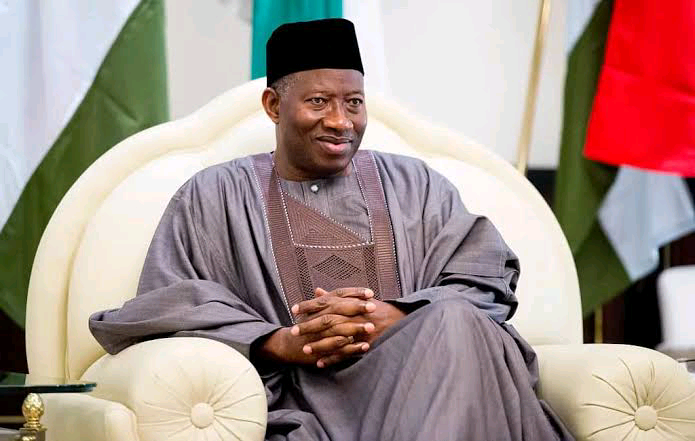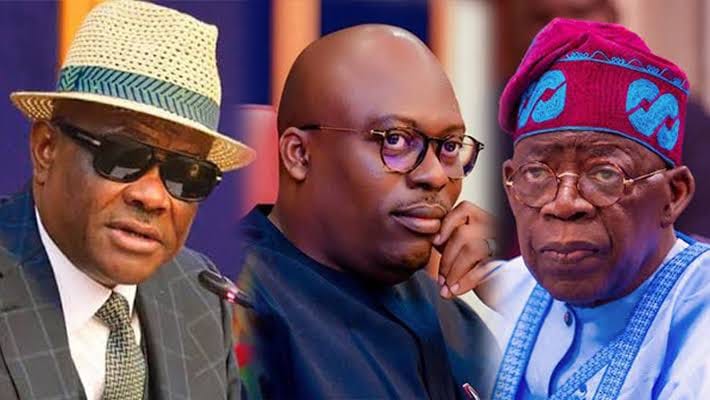Isaac Samuel
Former President Goodluck Jonathan has described the 2014 abduction of more than 270 schoolgirls from Government Girls Secondary School, Chibok, Borno State, as a permanent scar on his life and presidency.
Jonathan, who made the remark in Abuja on Friday at the public presentation of Scars, a book authored by former Chief of Defence Staff, Gen. Lucky Irabor (rtd.), said the mass kidnapping by Boko Haram insurgents would remain a painful chapter in Nigeria’s history and a stain he would carry forever.
The book launch attracted several prominent Nigerians, including former President Olusegun Obasanjo; President Bola Ahmed Tinubu, represented by the Minister of Defence, Abubakar Bagudu; Sultan of Sokoto, Sa’ad Abubakar; and Catholic Bishop Matthew Hassan Kukah.
The Chibok abduction, which occurred in April 2014, remains one of Nigeria’s worst security tragedies.
While some of the girls have since been rescued or escaped, over 90 are still unaccounted for more than a decade later.
“It is a scar I will die with. But perhaps later, more details may become known, and that too has to do with Boko Haram”, Jonathan said.
Jonathan suggested that the true motivations of the extremist group remain unclear, despite years of research, military action, and government engagement.
According to him, even insiders within his administration struggled to pin down the ideological or political goals of Boko Haram beyond their violent campaign.
The former president, who governed Nigeria from 2010 to 2015, also hinted that the insurgency was far more complex than often portrayed, saying the sophisticated weapons used by the terrorists indicated foreign involvement.
Jonathan stated, “One of the committees we set up then, the Boko Haram nominated Buhari to lead their team to negotiate with the government.
“So I was feeling that, oh, if they nominated Buhari to represent them and have a discussion with the government committee, then when Buhari took over, it could have been an easy way to negotiate with them and they would have handed over their guns. But it was still there till today.”
Jonathan noted that the inability of former President Muhammadu Buhari to eradicate Boko Haram terrorists showed that the crisis was more complex than often portrayed.
He said, “If you conduct research and interview many people, you will only get part of the story, but never the full story of Boko Haram. I was there. Boko Haram started in 2009 when I was vice president. I took over in 2010 and spent five years battling the insurgency until I left office.
“I thought that after I left, within a reasonable time, General Buhari would wipe them out. But even today, Boko Haram is still there. The issue of Boko Haram is far more complex than it is often presented.
“So, it’s a bit complex, and not a matter of a single story. But I believe, as a nation, we have to look at the Boko Haram issue differently from the conventional approach. I believe one day we’ll overcome it. Once again, let me thank General Irabor for this, because I always appreciate people who document events clearly. That way, when we write our own accounts, we can borrow from such documentation.
“I also believe that all the military officers involved in the Boko Haram saga should provide information about what the group truly stood for.”
Jonathan also said the issue of Boko Haram was beyond hunger, adding that his administration employed so many strategies, but they did not work.
He said, “If it was only about hunger—because we tried different options—I don’t want to sound like I’m defending my government. That will be left for history when we document our books.
“But I believe we did our best: we set up different committees and tried various approaches during the five years I was in office. I believe the late Buhari, too, must have tried his best
Jonathan urged the current administration to adopt a “carrot-and-stick” strategy to end the insurgency, warning that conventional approaches might never fully address the problem.
Speaking, former President Olusegun Obasanjo offered his assessment of the Boko Haram insurgency, suggesting that the group’s emergence is rooted less in political or religious motives than in the pursuit of improved living conditions.
The former two-term civilian president questioned the adequacy of Nigeria’s response to the insurgency over the past fifteen years.
“I found, yes, there was Boko Haram. I found they were not really aiming for anything political or anything seriously religious. But in short, they were looking for a better life. And any other thing attached to that is a better life for them,” Obasanjo said.
“Have we understood that? If we have, have we taken the steps that we should take? If we have, why are we, after fifteen years, Boko Haram is virtually becoming part of our life? Should we accept that? If we should not accept, what should we do? How much do we know?” he asked.
Obasanjo also raised concerns about the nation’s proactiveness and unity in confronting the insurgency. “I think we have to ask ourselves the necessary questions to be able to deal with this thing that is now becoming a monster within our country,” he added.





